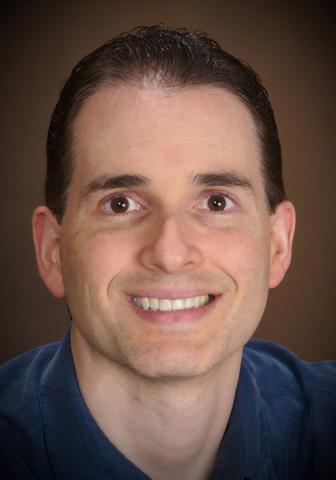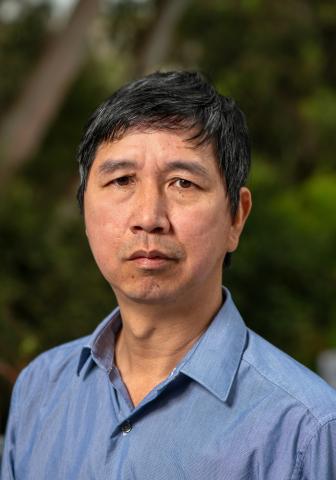Cal-THRIVES
A California Toolkit for Heat Resilience in Underserved Environments
 Heat is increasingly brutal in California’s Central Valley, where low incomes, poor air quality, old homes, and high utility bills disadvantage many residents. The good news is that we can act now on preventative strategies to mitigate heat health impacts. The multi-disciplinary Cal-THRIVES project has developed a cooling toolkit for local and state stakeholders below with the following objectives:
Heat is increasingly brutal in California’s Central Valley, where low incomes, poor air quality, old homes, and high utility bills disadvantage many residents. The good news is that we can act now on preventative strategies to mitigate heat health impacts. The multi-disciplinary Cal-THRIVES project has developed a cooling toolkit for local and state stakeholders below with the following objectives:
- Increase awareness of heat-related vulnerability
- Identify areas that are vulnerable to extreme heat events
- Remedy the built environment, such as building retrofits & increases to tree canopy
- Enhance community and home cooling programs
- Improve social capital and connectivity at the neighborhood level
 Our research and heat-resilience recommendations incorporate both community inputs and science:
Our research and heat-resilience recommendations incorporate both community inputs and science:
- Community Engagement
- Cooling center characterization and improvements
- Neighborhood-scale building modeling
- Outdoor measure modeling
- Overview slides [pdf file]
Cooling Toolkit
 This toolkit was developed as part of the Cal-THRIVES project funded by the California Strategic Growth Council.
This toolkit was developed as part of the Cal-THRIVES project funded by the California Strategic Growth Council.
Related publications
- Susan Mazur-Stommen. "Fresno State of Mind: Results from Heat Resilience Research in a Disadvantaged Community." Behavior, Energy, and Climate Change Conference (2020) [pdf file]
- Yujie Xu, Tianzhen Hong, Wanni Zhang, Zhaoyun Zeng, Max Wei. "Heat Vulnerability Index Development and Mapping." Symposium on Simulation for Architecture and Urban Design (2021) [pdf file]
- Kaiyu Sun, Wanni Zhang, Zhaoyun Zeng, Ronnen M. Levinson, Max Wei, Tianzhen Hong. "Passive cooling designs to improve heat resilience of homes in underserved and vulnerable communities." Energy and Buildings Volume 252 (2021) [pdf file]
- Zhaoyun Zeng, Wanni Zhang, Kaiyu Sun, Max Wei, Tianzhen Hong. "Investigation of pre-cooling as a recommended measure to improve residential buildings’ thermal resilience during heat waves." Accepted for publication to Building and Environment [pdf file]
Team:
Lawrence Berkeley National Lab led the project and building modeling using CityBES
 Indicia Consulting social scientists led focus groups and in-depth individual interviews.
Indicia Consulting social scientists led focus groups and in-depth individual interviews.
Susan Mazur-Stommen, Haley Gilbert
 University of Southern California led outdoor modeling using Envi-MET
University of Southern California led outdoor modeling using Envi-MET
George Ban-Weiss, Alexandra Bruce, Yuxi Liu, Kayley Butler
 West Fresno Family Resource Center led for community outreach and phone surveys
West Fresno Family Resource Center led for community outreach and phone surveys
Janice Mathurin, Yolanda Sue Randles
 We also thank the Fresno Economic Opportunity Commission for energy assessment data and phone survey support.
We also thank the Fresno Economic Opportunity Commission for energy assessment data and phone survey support.
 One-page and pocket community guides detailing tips for staying cool in the heat are available for download in English and Spanish.
One-page and pocket community guides detailing tips for staying cool in the heat are available for download in English and Spanish.  The toolkit offers a collection of fact sheets about passive and active cooling measures, ideal for use with more specialized audiences like DIY-enthusiasts, NGOs and program administrators.
The toolkit offers a collection of fact sheets about passive and active cooling measures, ideal for use with more specialized audiences like DIY-enthusiasts, NGOs and program administrators. 
 For extreme heat resilience program developers, engineers, and researchers, software tools are available to assist with neighborhood-scale building modeling.
For extreme heat resilience program developers, engineers, and researchers, software tools are available to assist with neighborhood-scale building modeling. 






